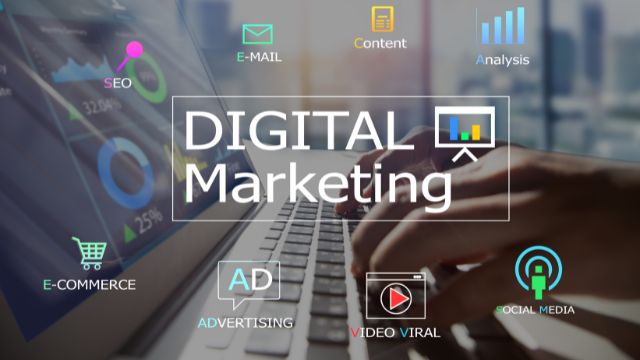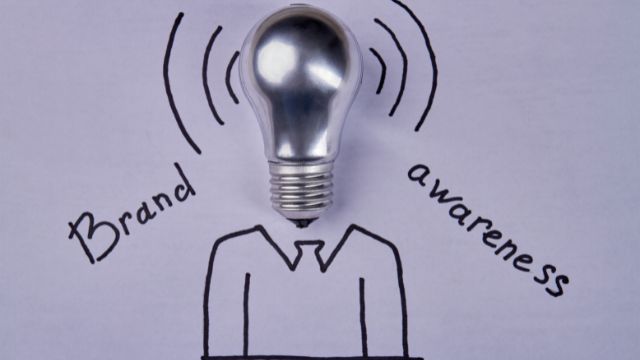In today’s tech-savvy world, digital marketing has become an essential aspect of any business strategy. Understanding the functions of digital marketing can help businesses utilize their potential to reach a wider audience and improve their online presence. In this blog, we will delve into the four functions of digital marketing and their significance in achieving business goals.
What is Digital Marketing?

Digital marketing is the use of digital channels such as search engines, social media, email, and websites to promote items or services. It involves creating, implementing, and managing online marketing campaigns to reach and engage with a targeted audience. The goal of digital marketing is to drive business growth by increasing brand awareness, generating leads, and ultimately converting those leads into customers.
The 4 Functions of Digital Marketing
1. Creating Brand Awareness

The first function of digital marketing is to create brand awareness. It involves making people aware of your brand, its products or services, and what makes it unique. Digital marketing helps achieve this through various channels, such as:
- Social media platforms such as Facebook, Twitter, and Instagram are excellent tools for creating brand awareness. Businesses can build a following and increase brand recognition by posting engaging content regularly.
- Content marketing involves creating and sharing valuable content, such as blog posts, videos, and infographics, to attract and engage potential customers, ultimately building brand loyalty and trust.
- Search engine optimization (SEO) is another vital tool for creating brand awareness. You can improve your website’s ranking in search results and make it easier for potential customers to find you online by optimizing it for search engines. It can include keyword research, on-page optimization, and link building.
2. Generating Leads
The second function of digital marketing is to generate leads. It includes identifying potential customers and encouraging them to take specific action, such as filling out a form, subscribing to a newsletter, or downloading an e-book.
Businesses can generate leads through various channels, such as:
- Email marketing is an effective approach for generating leads. By collecting email addresses from website visitors or customers, businesses can send targeted emails with personalized content and promotions to encourage them to take the next step. It can include offering a free trial or demo, providing exclusive content or discounts, or inviting them to attend an event or webinar.
- Pay-per-click (PPC) advertising is another excellent approach to generating leads. By targeting specific keywords or demographics, businesses can display ads to potential customers who are actively searching for their products or services. It can include search ads, display ads, or social media ads.
3. Converting Leads into Customers
The third function involves nurturing relationships with potential customers and providing them with the information and resources they need to make a purchase decision. Digital marketing helps achieve this through various channels, including:
- Content marketing is a powerful tool for converting leads into customers. Businesses can demonstrate their expertise and build trust with potential customers by creating valuable and informative content, such as product guides, case studies, or customer testimonials.
- Retargeting is another effective tool for converting leads into customers. By displaying ads to people who have previously visited your website or interacted with your brand, businesses can remind them of their interests and encourage them to take action.
4. Retaining Customers
The fourth and final function of digital marketing is to retain customers. It entails building long-term relationships with customers and encouraging them to continue to use your products or services.
Businesses can retain customers using various digital marketing channels, including:
- Email marketing is an effective tool for retaining customers. Businesses can encourage repeat purchases and loyalty by sending targeted emails with personalized content and promotions. It can include offering exclusive discounts or promotions, helpful tips, and resources and inviting them to participate in a loyalty program.
- Social media is also a vital tool for retaining customers. Businesses can build a community and encourage loyalty by engaging with customers on social media platforms. It can include responding to customer inquiries or feedback, sharing user-generated content, or hosting social media contests or giveaways.
If you want to learn more about digital marketing and equip yourself with the skills needed to succeed in the industry, undertake an advanced digital marketing course. It provides an in-depth understanding of the various aspects of digital marketing, including SEO, social media marketing, content marketing, PPC, and email marketing. This course is ideal for working professionals or freshers, offering career growth opportunities and the chance to become a successful digital marketer.
Santosh Kumar, the author behind IndiasStuffs.com, is passionate about sharing valuable insights on a variety of topics, including lifestyle, technology, and Indian culture.
Page Contents

